Apex Recovery Tennessee Accepts Insurance and
Offers Private Pay Options
At Apex Recovery Tennessee we are dedicated to helping those who need support and care in their mental health recovery journey. We specialize in well-rounded depression treatment that is designed to meet your unique needs. With mental health services ranging from mindfulness practices to wellness therapies, you’ll find every aspect of your emotional well-being addressed in our modern, luxurious facilities. 24/7 clinical support is provided from qualified professionals and Apex Recovery strives on providing high-quality, personalized care to each individual. Conveniently located in Columbia and Brentwood, Apex Recovery serves residents across Tennessee, including Nashville, Memphis, Knoxville, and beyond. Both health insurance and private pay options are accepted, making depression treatment as accessible as possible for you or your loved ones.
If you’re wondering about your insurance coverage options for depression treatment, Apex Recovery is here to help. Learn about your insurance benefits or explore private payment plans with guidance from our friendly and knowledgeable team. Reach out today at (615) 703 4639 to learn how our Apex Recovery team can assist you on the path to better mental health. Your first step to lasting recovery is just a call away.
What is a Private Depression Treatment Center?
A private depression treatment center is a specialized recovery facility that offers focused care for individuals who are dealing with depression. These behavioral health centers prioritize privacy, personalized treatment plans, and a high level of one-on-one support. Depression treatment services in Tennessee often include therapies, modern resources, and an environment designed to aid in restoring mental health and personal well-being.
Apex Recovery excels in providing private depression treatment through customized programs and evidence-based approaches. With luxurious, calming mental health facilities in Columbia and Brentwood, we offer a supportive environment and 24/7 clinical support. Serving people from across Tennessee, our commitment to person-centered care helps you take the first step toward lasting recovery.
Depression and Mood Disorder Statistics in Tennessee
Tennessee, with a population of over 7 million, faces significant challenges in mental health, particularly concerning depression and mood disorders. Approximately 26% of adults in the state have been diagnosed with depression, ranking Tennessee among the states with the highest prevalence of this condition. Factors contributing to this include socioeconomic disparities, limited access to mental health care, and environmental stressors.
The economic burden of mental health issues is substantial. Treatment costs for mood disorders, including depression, contribute significantly to healthcare expenses in Tennessee. Addressing these challenges requires accessible care and community support to reduce the long-term impact on those who are struggling and the healthcare system.
Check Your Insurance with Apex Recovery
Apex Recovery accepts insurance and offers assistance in checking your mental health coverage levels. Knowing which depression treatment programs your health insurance includes is a key step in receiving mental health care. Our experienced team is here to guide you through this process, making it easier to access the recovery therapies covered by your plan.
How Much Does Depression Treatment Cost Without Insurance in Tennessee?
The cost of depression treatment without insurance in Tennessee depends on the program you choose. For inpatient treatment, monthly costs range from $6,000 to $30,000, while daily costs range from $200 to $1,000. Outpatient care is typically lower, with monthly costs of $2,000 to $10,000 or daily rates between $70 and $334.
At Apex Recovery we understand that financial concerns should never be a barrier to receiving the care you require. That’s why we offer private pay options for those without insurance. Our qualified team works closely with clients to create unique treatment plans and explore payment solutions, making sure that everyone has access to premium treatment for depression when they need it most.
How Much Does Depression Treatment Cost With Insurance Coverage in Tennessee?
The cost of depression treatment with insurance in Tennessee largely depends on your specific plan. Generally, with insurance, daily out-of-pocket costs for inpatient programs could exceed $150 for co-pays and deductibles, while outpatient care might involve co-pays of $0 to $50 per session. Everyone’s insurance is different and may cover all or a substantial part of the costs.
At Apex Recovery, we specialize in developing tailored treatment programs based on your insurance coverage for depresssion and care needs. Our healthcare team works closely with you to find the best options, making sure that you can get help for depression in Tennessee while minimizing financial stress.
Free Depression Evaluation
Private Depression Treatment Centers in Tennessee
Private depression treatment centers provide a patient-centered, supportive approach to mental health care, focusing on individual needs in a caring environment. Apex Recovery proudly offers behavioral health facilities in two premier locations in Tennessee, where people who are seeking depression treatment can access exclusive, evidence-based care.
- Apex Recovery Brentwood: 209 Ward Cir, Brentwood, TN 37027
- Apex Recovery Columbia: 2710 Trotwood Ave STE A & B, Columbia, TN 38401
How to Find Major Depressive Disorder (MDD) Treatment Near Me
Finding the right treatment for major depressive disorder (MDD) is essential for your mental health recovery journey. It involves careful research and asking the right questions to make sure you choose a mental health facility that best meets your specific needs. Use these tips below to evaluate your options effectively:
- Search “MDD treatment near me” on Google: Use keywords like “major depressive disorder treatment near me” or “depression clinics nearby” to discover behavioral health facilities that specialize in MDD treatment in your area.
- Check Treatment Provider’s Tennessee Locations: Look for depression treatment centers in cities like Nashville, Brentwood, and Columbia, which are known for having reputable mental health facilities with quality care for MDD.
- Check if they Offer Inpatient or Outpatient treatment: Determine if the provider offers inpatient or outpatient depression programs in Tennessee to make sure that their treatment model aligns with your recovery needs and preferences.
- Check if they Use Evidence-Based Methods: Ensure they use evidence-based therapies, such as cognitive-behavioral therapy (CBT), which are proven to be effective for managing MDD.
- Ask About Amenities for Inpatient Depression Treatment: If inpatient care for depression is needed, inquire about the resources offered, such as private rooms, wellness programs, or recreational spaces, to improve your recovery experience.
- Check If They Accept Health Insurance: Confirm whether the recovery facility accepts your health insurance plan and verify what costs are covered to make treatment more affordable.
How Much Does a Depression Assessment and Diagnosis Cost?
The cost of a depression assessment and diagnosis can vary based on the insurance provider and the treatment services involved. Typically, prices range from $100 to $500. Some factors influencing costs include the facility’s location, type of evaluation, and whether additional consultations or tests are needed.
Here at Apex Recovery, mental health assessments are offered free of charge as part of the treatment admissions process. This makes sure that the right treatment program is tailored right from the start. Our dedicated team is committed to providing accessible support, helping you take the first step toward recovery with confidence.
How Much Does a Psychiatrist for Depression Cost in Tennessee?
In Tennessee, the cost of seeing a psychiatrist for depression varies. Initial consultations typically range from $200 to $500, while follow-up sessions cost between $100 and $300. Actual costs depend on the provider and insurance coverage, which can help offset these expenses for patients.
Factors like the psychiatrist’s experience, location, and whether sessions are in-person or virtual can influence the cost. Insurance often reduces out-of-pocket expenses, and many providers offer sliding scale fees to accommodate varying financial situations. Exploring these options can make mental health services more accessible to those in need.
Average Cost of Inpatient Depression Treatment Without Insurance
The average cost of inpatient depression treatment without insurance ranges from $6,000 to $30,000 per month or $200 to $1,000 per day. It is influenced by several factors, including the behavioral health facility, the treatment plan, and the length of stay at the clinic.
At Apex Recovery, we specialize in creating personalized treatment plans based on your unique needs and circumstances. Whether or not you have insurance coverage, our caring team is committed to helping you. Call us now at (615) 703 4639 to explore options for depression treatment near you that aligns with your financial and personal requirements.
Depression Assessment and Screening
Average Cost of Outpatient Depression Treatment Without Insurance
The average monthly cost of outpatient depression treatment is between $2,000 and $10,000, or $70 and $334 per day. Costs for depression treatment without insurance can vary widely based on several factors, such as the type of healthcare program, the frequency of sessions, and the mental health clinic.
At Apex Mental Health Recovery, we create customized rehabilitation plans tailored to your distinct situation, whether or not you have insurance for depression treatment. Our qualified team is dedicated to helping you explore affordable MDD care options, setting you on the path to effective recovery as soon as possible.
Average Cost of Depression Medication in Tennessee
The cost of depression medication in Tennessee depends on the type of medication, dosage, and any related treatment services like therapy or psychiatric consultations. On average, daily medication costs range from $5 to $15, while monthly costs can reach $150 to $450. Additional expenses for therapy or psychiatry may influence overall costs.
Treatment is more affordable because depression medication and related services are often covered by insurance plans. Apex Recovery accepts insurance, helping clients reduce out-of-pocket expenses. Find the best information to aid in your recovery by reading on to learn about the prices of common mental health drugs.
Cost of Sertraline (Zoloft) for Treating Low Mood and Emotional Imbalance
The cost of sertraline (Zoloft) varies based on factors like dosage amount and the pharmacy. A 30-day supply typically costs $10 to $30 with insurance, while the price ranges from $30 to $100 without insurance. Comparing prices between pharmacies can help lower expenses further.
Sertraline (Zoloft) is a widely prescribed SSRI medication commonly used to treat depression, anxiety, and emotional imbalance. It improves mood, lessens anxiety symptoms, and assists patients in regaining emotional stability and well-being while undergoing treatment.
Cost of Fluoxetine (Prozac) for Managing Persistent Sadness and Irritability
The price of fluoxetine (Prozac) varies by the quantity of dosage and pharmacy. With insurance, a month’s supply usually costs $10 to $25, but without insurance, out-of-pocket costs could be anywhere from $30 to $120. Costs can be reduced by comparing pharmacies or choosing generic versions.
Prozac, also known as fluoxetine, is used to treat irritability, anxiety, and depression. It improves mood, lifts chronic depression, and encourages emotional stability. By addressing these problems, balance can be restored and mental health management improved.
Cost of Escitalopram (Lexapro) for Emotional Wellbeing and Mental Clarity
The cost of Escitalopram (Lexapro) depends on the amount of dosage received and pharmacy selection. A 30-day supply usually ranges from $10 to $25 with insurance, while prices without insurance range between $30 and $120. Opting for generic options can significantly lessen the overall costs.
Escitalopram is an SSRI drug used to treat anxiety and depression, also known as Lexapro. It helps improve mental clarity and emotional well-being by raising serotonin levels in the brain. People can improve their general quality of life and better manage their symptoms due to its well-rounded approach.
Cost of Citalopram (Celexa) for Stabilizing Mood and Managing Mental Health Challenges
The cost of Citalopram (Celexa) varies based on dosage and pharmacy. A 30-day supply typically ranges from $10 to $20 with insurance, while prices without insurance range from $30 to $100. Costs can be reduced by choosing cheaper substitutes or by comparing pharmacy prices.
Citalopram (Celexa) is a well-known medication that is often prescribed to treat depression and anxiety. It helps stabilize mood, reduce mental health challenges, and support emotional balance. By improving serotonin levels in the brain, it enables those to better manage symptoms and enhance their overall quality of life.
Cost of Paroxetine (Paxil) for Addressing Mood Disturbances and Anxiety Symptoms
The cost of Paroxetine (Paxil) varies depending on dosage and pharmacy. A 30-day supply typically ranges from $10 to $25 with insurance, while out-of-pocket costs can range from $30 to $120 without insurance. Exploring common options or comparing pharmacy prices can help reduce expenses.
For mood disorders, anxiety, and depression, paroxetine, also known as Paxil, is frequently prescribed. It helps people manage their mental health issues more skillfully by restoring emotional stability, reducing anxiety symptoms, and balancing serotonin levels in the brain.
Cost of Bupropion (Wellbutrin) for Enhancing Motivation and Focus
The cost of Bupropion (Wellbutrin) depends on dosage and pharmacy selection. A 30-day prescription can range from $15 to $30 with insurance, while prices without insurance range between $40 and $150. Opting for standard versions or comparing pharmacy prices can help minimize costs.
Bupropion (Wellbutrin) is a popular medication prescribed for depression and seasonal affective disorder. It works differently from SSRIs, helping to boost motivation, improve focus, and manage symptoms effectively. By addressing energy levels and concentration, it supports people in regaining a sense of purpose and mental clarity.
Cost of Venlafaxine (Effexor XR) for Easing Mental Fatigue and Emotional Instability
The cost of venlafaxine (Effexor XR) varies based on dosage and pharmacy. A month’s worth of venlafaxine may range from $15 to $40 with insurance, while out-of-pocket costs can range from $50 to $200 without insurance. Checking for generic options or comparing pharmacy prices can help reduce expenses.
Venlafaxine (Effexor XR) is a widely prescribed SNRI medication effective in treating depression, anxiety, and panic disorders. It helps ease mental fatigue, promote emotional stability, and manage symptoms by balancing serotonin and norepinephrine levels. This makes it a valuable option for achieving greater mental and emotional well-being.
Cost of Duloxetine (Cymbalta) for Managing Emotional Pain and Physical Symptoms
The cost of duloxetine (Cymbalta) depends on dosage and pharmacy. A 30-day supply typically costs $15 to $50 with insurance, while out-of-pocket expenses range from $60 to $200 without insurance. Opting for generic versions or comparing pharmacy prices can help reduce costs.
Duloxetine (Cymbalta) is an SSRI drug prescribed to treat chronic pain, anxiety, and depression. By keeping serotonin and norepinephrine levels in check, it helps control emotional suffering and reduce physical symptoms. People can improve their overall quality of life and mental health with this dual-action strategy.
Cost of Desvenlafaxine (Pristiq) for Coping with Chronic Mental Distress
The cost of desvenlafaxine (Pristiq) varies depending on dosage and choice of drugstore. 30 days can cost from $20 to $60 with insurance, while prices without insurance range from $80 to $250. Shopping around or considering generic options can help reduce expenses.
Desvenlafaxine can effectively ease chronic mental distress by restoring balance to the brain’s serotonin and norepinephrine levels. People are able to better manage their mental health issues and develop emotional resilience as a result.
Cost of Nortriptyline (Pamelor) – TCA for Improving Emotional Stability and Sleep
A month’s prescription of nortriptyline (Pamelor) can cost from $5 to $20 with insurance, while prices without insurance fall between $20 and $60. Choosing generic versions or comparing pharmacy prices can help reduce expenses.
Nortriptyline (Pamelor) is a tricyclic antidepressant (TCA) commonly prescribed for depression, anxiety, and sleep disturbances. By balancing neurotransmitter levels, it aids in improving emotional stability, enhancing sleep quality, and managing symptoms effectively. This makes it a valuable option for those seeking relief from mental health challenges and better overall well-being.
Cost of Amitriptyline – Tricyclic Option for Treating Long-Term Mood Disorders
The cost of amitriptyline depends on strength levels and pharmacy choice. A 30-day supply typically ranges from $5 to $15 with insurance, while prices without insurance range from $15 to $50. Opting for generic versions or comparing pharmacy prices can help minimize expenses.
Amitriptyline is a tricyclic antidepressant commonly prescribed for long-term mood disorders like depression and chronic pain. It works by balancing neurotransmitter levels, which improves mood, reduces symptoms, and aids in effectively managing conditions. Its versatility makes it a valuable option for patients seeking sustained relief and emotional stability.
Cost of Trazodone for Restoring Restful Sleep and Emotional Balance
Trazodone can cost from $5 to $15 with insurance and $15 to $50 without insurance per month. Exploring different options or comparing pharmacy prices can help bring down costs.
Trazodone is a frequently prescribed medication for depression, anxiety, and sleep disorders. It promotes restful sleep, enhances emotional balance, and supports individuals in managing their symptoms more effectively. Its calming effects make it a valuable option for those seeking relief from both mental health and sleep-related challenges.
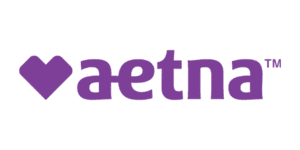
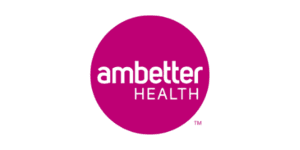
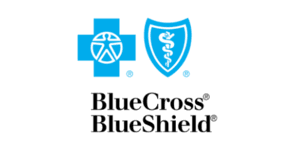
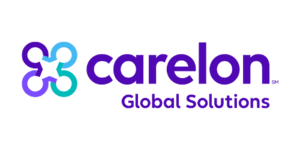
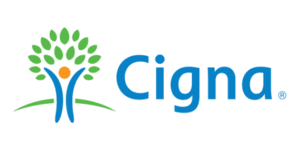
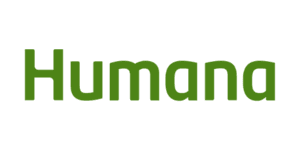
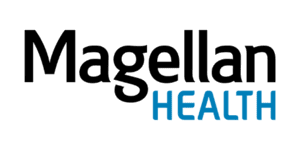
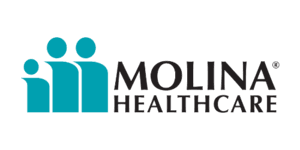
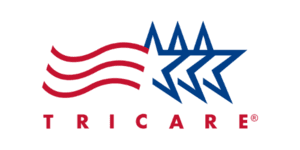

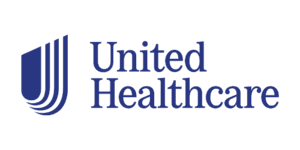
Check Your Health Insurance Coverage
"*" indicates required fields
How Much Does Ketamine Therapy for Depression Cost in Tennessee?
Ketamine therapy for depression in Tennessee typically costs between $400 and $800 per session. Most patients require 6-8 sessions for initial treatment, with total expenses ranging from $2,400 to $6,400.
The cost of ketamine therapy depends on factors like the mental health clinic’s reputation, the provider’s expertise, and whether additional services, such as counseling, are offered. Despite the upfront expense, many patients report significant improvements in treatment-resistant depression, making it a valuable mental health investment for long-term relief.
How Much Does TMS for Depression Cost in Tennessee?
TMS (Transcranial Magnetic Stimulation) therapy in Tennessee typically costs between $300 and $500 per session. A complete course of treatment, which often includes 20-30 sessions, amounts to approximately $6,000 to $15,000. Costs can vary based on the behavioral health clinic’s location, the provider, and whether insurance covers part of the treatment.
The overall cost of TMS depends heavily on factors such as insurance approval, the mental health clinic’s reputation, and the expertise of the provider. While the upfront expense may seem substantial, many patients find TMS to be a highly effective solution for treatment-resistant depression, offering long-term relief and improved quality of life.
How to Pay for Depression Recovery Treatment
There are several ways to pay for depression recovery treatment, including insurance, out-of-pocket payments, financing plans, or assistance programs. Many mental health centers also offer flexible payment options to help make care more affordable. Exploring multiple avenues can ensure you find an option that fits your financial situation.
Insurance is the most common way to pay for treatment. Many healthcare plans cover therapy, medications, and specialized treatments like TMS or ketamine therapy. It’s important to review your policy thoroughly and confirm what is included within your treatment plan. Contacting your insurance provider can clarify coverage and help you plan for expenses.
At Apex Recovery, we offer personalized guidance to help you explore the payment options for depression treatment. Our caring team can assist in navigating your insurance, arranging financing plans, and identifying cost-effective solutions. Reach out today at (615) 703 4639 to start your recovery journey without the worry for financial barriers. We’re here to make treatment accessible for you and your loved ones.
Statistics on Private Funding and Insurance for Depression in the U.S.
- In 2021, 53.3% of adults in Tennessee with any mental illness, including depression, had private insurance, compared to 59.6% nationally.
- Tennessee’s Behavioral Health Safety Net (BHSN) program provides essential outpatient mental health services, including for depression, to uninsured residents who meet income and residency requirements.
- In 2021, an estimated 61.0% U.S. adults aged 18 or older with major depressive episodes received treatment in the past year.
- Around 20% of people with mental disorders are uninsured compared to 15% in the US population.
- Among adults with any mental illness and perceived unmet need, 72% reported at least one structural barrier.
